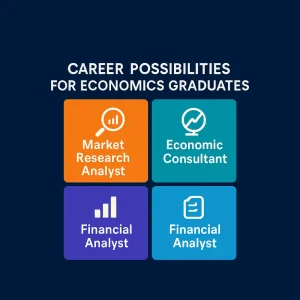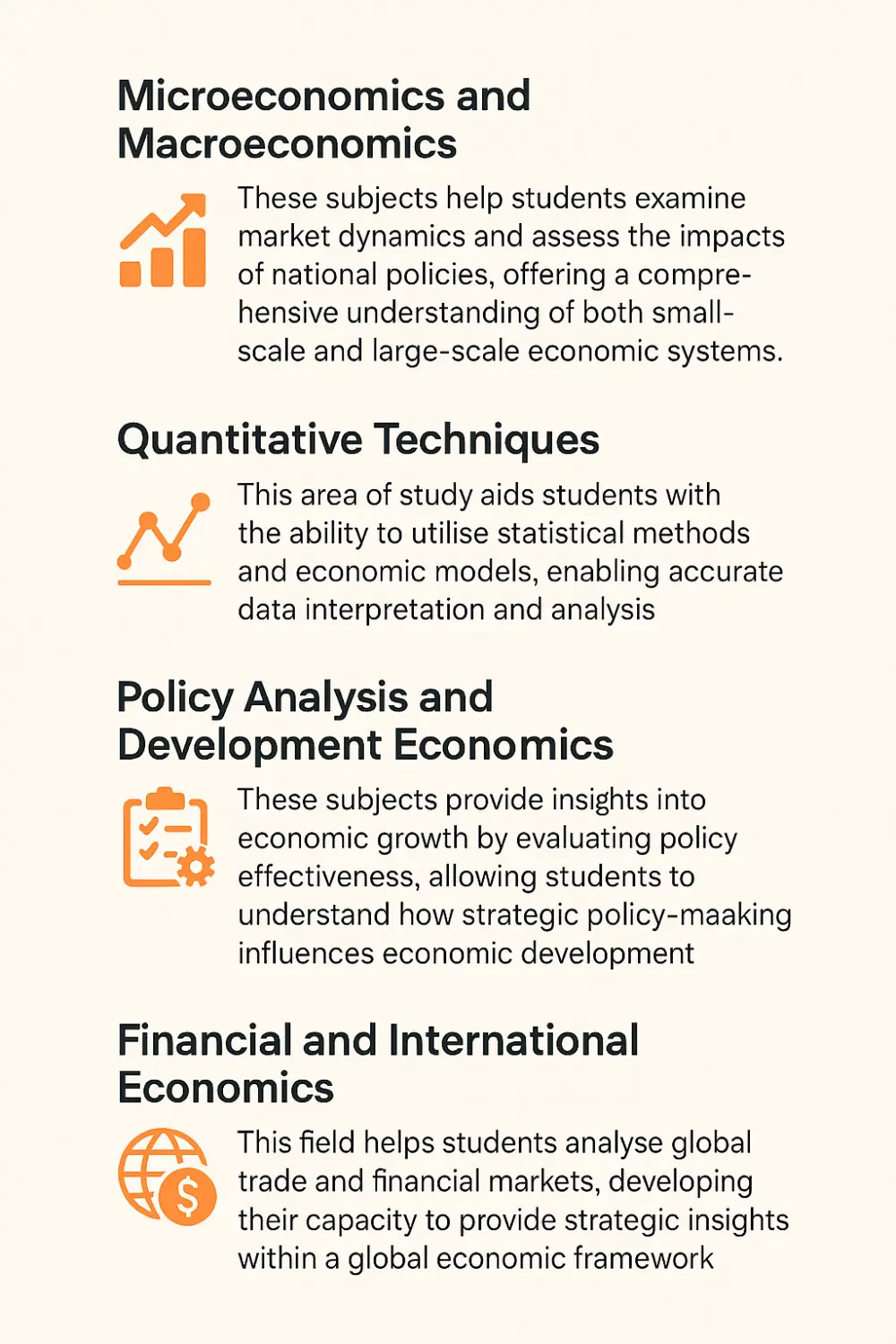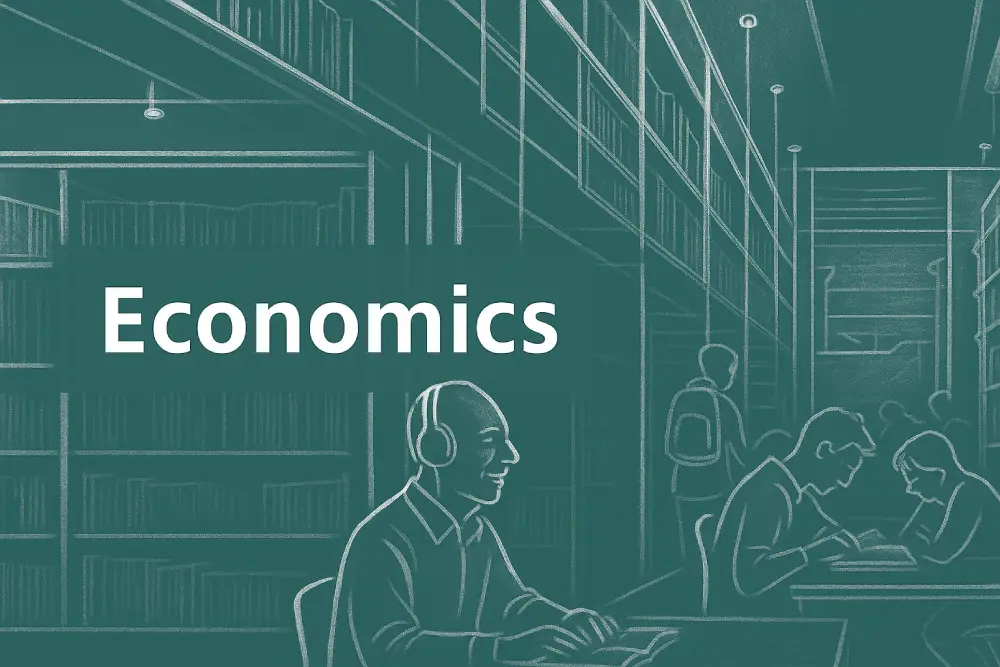Are you someone who is always curious about what drives the economy? Do you question why prices rise, how policies affect our lives, or what shapes global markets? If so, a BA Honours in Economics is your calling. After high school, you must be looking for a degree that not only promises knowledge but also offers a tangible career path. You need clarity on where it can lead you, what kind of opportunities you can expect, and whether it will be worth the investment of your time and effort.
The journey to becoming an economist goes beyond attending lectures and passing college exams. It’s about developing a mindset, learning to analyse real-world problems, and discovering how you can make a difference. Economics is the backbone of decision-making, whether it’s in government, businesses, or international organisations. The one of the best BA Economics Universities in India do not just teach you theories, they transform you into a professional who can understand and influence the world of economics.
The Growing Demand for Economists Globally
Economists play a vital role in shaping policies, driving business strategies, and offering insights into economic trends. With India targeting a $5 trillion economy by 2025, the demand for skilled economists is at an all-time high (NSDC Report). On a global scale, the U.S. Bureau of Labor Statistics predicts a 6% growth in economist roles between 2022 and 2032 (BLS), showcasing a consistent need for economic expertise.
- Rising Demand in India: Approximately 1.5 lakh economists will be needed by 2025.
- International Opportunities: Increasing global demand opens pathways to institutions like the World Bank and IMF.
- Public Sector Growth: Government exams, including UPSC, offer secure and well-paid roles for economists.
What Are The Career After BA in Economics?
A BA in Economics from the top Indian University offers a wide spectrum of career opportunities. Economists work as policy analysts, financial consultants, researchers, and advisors in diverse sectors. The course prepares students to excel in both public and private domains.
What Do You Learn At The Top Universities For BA Economics India?
The curriculum of an honours in economics programme is meticulously designed to combine theoretical foundations with practical insights. It develops analytical thinking, quantitative analysis, and a profound understanding of economic principles.
- Microeconomics and Macroeconomics: These subjects help students examine market dyn
- amics and assess the impacts of national policies, offering a comprehensive understanding of both small-scale and large-scale economic systems.
- Quantitative Techniques: This area of study aids students with the ability to utilise statistical methods and economic models, enabling accurate data interpretation and analysis.
- Policy Analysis and Development Economics: These subjects provide insights into economic growth by evaluating policy effectiveness, allowing students to understand how strategic policy-making influences economic development.
- Financial and International Economics: This field helps students analyse global trade and financial markets, developing their capacity to provide strategic insights within a global economic framework.
How Do The Best Universities for Economics Honours in India Transform Students into Economists?
Universities offering BA Economics in India focus on a holistic education approach, balancing academic rigour with real-world applications. They provide students with platforms to experiment, learn, and grow through experiential learning methods.
- Internships and Practical Exposure: Students gain hands-on experience through collaborations with government bodies, think tanks, and corporate organisations, enhancing practical understanding and industry readiness.
- Interactive Workshops and Seminars: The programme offers frequent sessions with renowned economists and industry leaders, providing valuable insights and enhancing the overall learning experience.
- Research Opportunities: Students engage in live projects under faculty guidance, allowing them to develop critical research and analytical skills through practical application.
- Soft Skills Development: The curriculum focuses on building essential communication, presentation, and problem-solving abilities, preparing students to excel in diverse professional environments.
What Else Do Good Universities for Economics Provide?
The shift from being a student to a professional economist involves more than academic knowledge. Indian colleges provide robust support systems, helping students build confidence and gain clarity on their career paths.
- Comprehensive Career Guidance: Students receive personalised counselling from preparing for competitive exams to exploring higher education.
- Strategic Campus Placements: Many top colleges for economics degree offer career services that connect students with reputable employers.
- Professional Networking: Through alumni meets, industry events, and partnerships, students gain valuable professional connections
A BA in Economics degree is a powerful asset that opens doors to higher education and specialisation. Many graduates choose to pursue advanced studies such as an MA in Economics, an MBA, or globally recognised certifications like the CFA. The degree also provides a strong foundation for those aiming to influence economic policies, contribute to academia, or lead in corporate environments.
B.A. / B.Sc. Economics (Honours.) Programme At Jindal School of Government and Public Policy
The B.A. / B.Sc. Economics (Hons.) programme at Jindal School of Government and Public Policy (JSGP) provides a versatile education that assimilates theoretical knowledge with practical applications. The B.A. stream focuses on global economics, business, and policymaking, while the B.Sc. stream emphasises analytical and quantitative skills, preparing students for empirical research and problem-solving.
Explore Jindal School of Government and Public Policy
B.Sc. / B.A. Economics (Hons.) Course
Course Structure of B.A. / B.Sc. Economics (Hons.) at JSGP
The programme structure spans four years, with an optional research year. The curriculum is divided into eight semesters over three years.
| First Year | Covers foundational subjects like Mathematics, Statistics, Principles of Economics, and Academic Writing. |
| Second Year | Introduces advanced topics such as Econometrics, Macroeconomics, Game Theory, Applied Economic Analysis, and Public Economics. |
| Third Year | Offers elective courses in Indian Economy, International Trade, Money and Banking, Equity & Fairness, and advanced statistical programming languages like R and STATA. |
| Fourth Year | Includes research opportunities and discipline electives. |
Eligibility Criteria for B.A. / B.Sc. Economics (Hons.)
Applicants must have completed Class XII or an equivalent exam from recognised boards (CBSE, State Boards, IB, ISC, Cambridge). While having studied Mathematics in Class XII is preferred, it is not mandatory. The admission process at Jindal School of Government and Public Policy is holistic, evaluating candidates through a personal statement, supplemental application, Class 10 and 12 marks, a faculty interview, and a JSAT score of 55% or equivalent (SAT, ACT).
Career Opportunities After B.A. / B.Sc. Economics (Hons.)
Graduates of Economics (Hons.) programmes have diverse career opportunities.
| Sector | Responsibilities |
| Government and Public Policy | Policy think tanks, regulatory bodies, and public administration |
| Finance and Banking | Investment banks, asset management, trading desks, and financial consultancy |
| Consulting and Corporate Sector | Management consultancy, economic consultancy firms, and corporate strategy roles |
| International Organisations and Academia | Research, teaching, and policy analysis |
Scholarships and Financial Assistance for Economics Students
JSGP offers Merit cum Means (MCM) Scholarships, providing tuition fee waivers based on family income, academic performance, and interview scores. Additionally, JGU has tie-ups with AVANSE (ICICI), Dena Bank, and Credila (HDFC) to facilitate educational loans for both undergraduate and postgraduate programmes.
Final Thoughts
If you are intrigued by markets, fascinated by policies, or passionate about numbers, a BA in Economics could be the path to your future. The blend of academic and practical training provided by leading Economics institutes in India can help you build a career that is not only dynamic but also deeply impactful. So if you want to ride the wave and be the next frontrunner in the economic play, we encourage you to contact Jindal School of Government and Public Policy for BA Economics course details.
FAQs
1. How will JSGP help me build a strong foundation in economics beyond the classroom?
At JSGP, you’ll not only study economic theories but also apply them through live projects with government bodies, think tanks, and corporations. You’ll analyse real-world data using tools like R and STATA and gain insights from top economists in interactive workshops.
2. Can JSGP guide me towards a specific career path in economics?
Yes! Whether you’re aiming for roles in policy analysis, finance, consulting, or academia, JSGP’s dedicated career cell offers tailored support. From preparing for the Indian Economic Service (IES) to connecting with recruiters like the World Bank and top consulting firms, JSGP has you covered.
3. I’m interested in research. What opportunities does JSGP provide?
JSGP’s optional fourth year is perfect for research enthusiasts. You can dive into discipline electives, work on live research projects, and even publish your work. The hands-on guidance from experienced faculty will help you build a strong research profile.
4. Can JSGP help me with scholarships or financial aid?
Absolutely! JSGP offers Merit cum Means (MCM) scholarships based on your academic performance and financial need. Plus, their tie-ups with banks like ICICI and HDFC ensure that financial constraints don’t hold you back.
5. How does JSGP prepare me for global opportunities in economics?
JSGP’s curriculum focuses on both Indian and global economic scenarios. With electives in International Trade and opportunities to interact with global experts, you’ll gain the insights needed for roles in organisations like the IMF, UN, or multinational corporations.
Sources Used
1. https://nsdcindia.org






